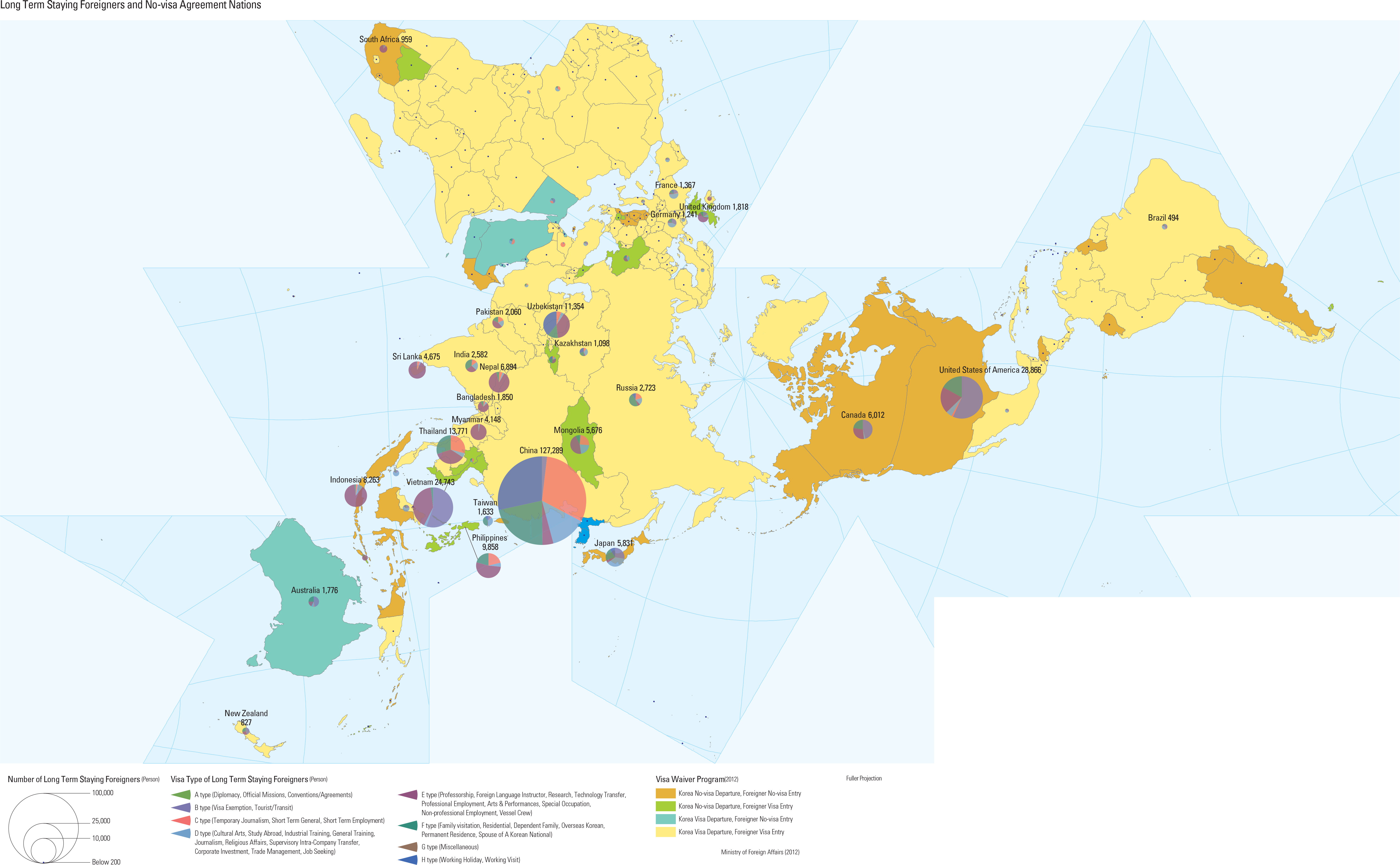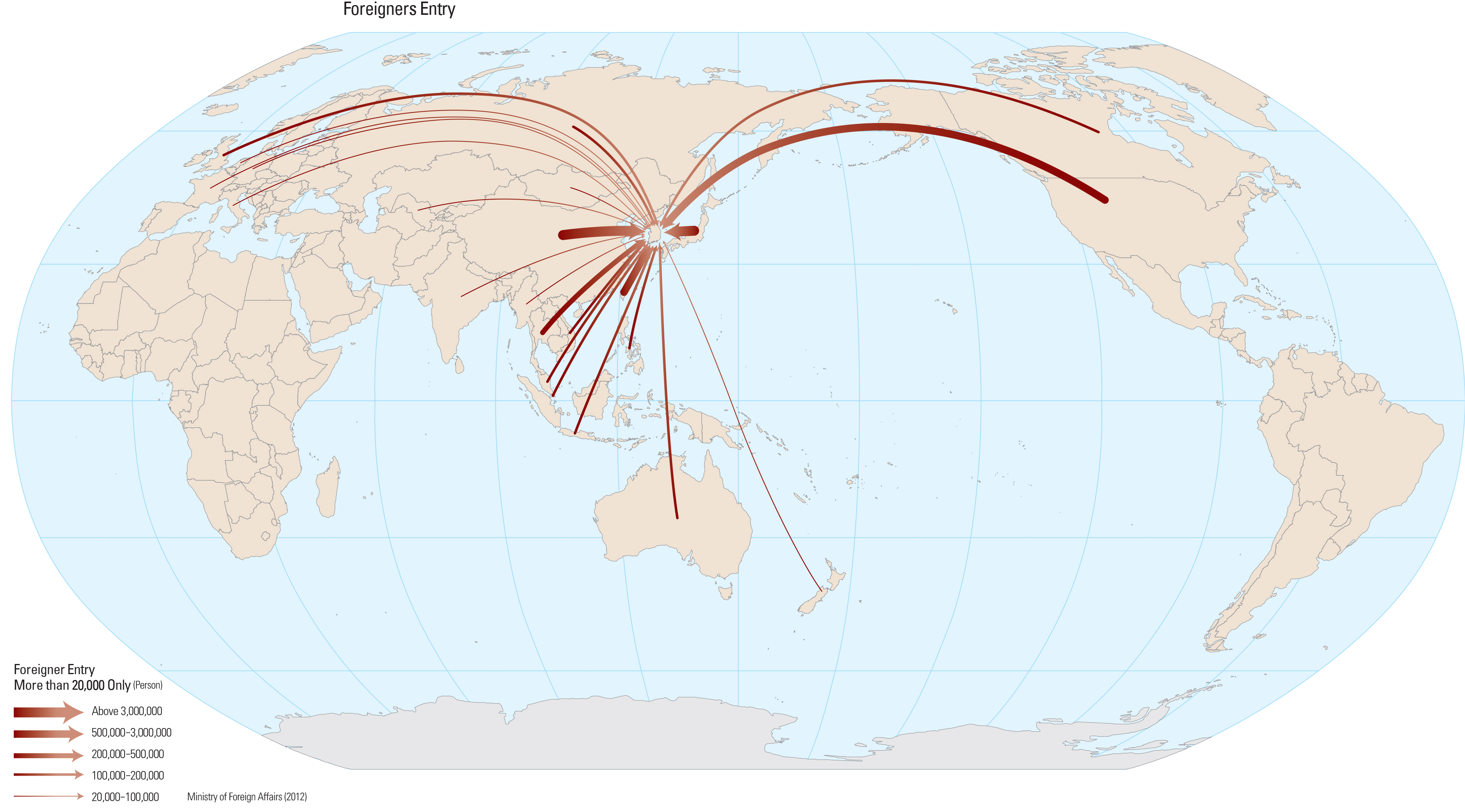On the map showing the departure of Koreans and the entry of foreigners in 2012 we can see the increased personal exchanges across the national boundary in the era of globalization. The Korean government has promoted these personal exchanges through visa waiver programs with many countries. Koreans are free to travel to 53 countries without a visa while foreigners from 50 countries may enter Korea without a visa. Particularly, Jeju Island in Korea allows most foreigners to stay for 30 days for tourism.
The map shows both the number and origin of foreigners that visited Korea in 2012. More than three million visitors came from Japan and China, respectively, followed by the US, Taiwan, and Thailand. More visitors are currently coming to Korea from the geographically close countries, and that the number decreases as distance increases. The map also shows the foreigners who make extended stays, where they are from, and why they have come to Korea. We can find the purpose of their stays through their visas which are classified into 8 types: A type (Diplomacy, Official Missions, Conventions Agreements), B type (Visa Exemption, Tourist Transit), C type (Temporary Journalism, Short Term General, Short Term Employment), D type (Cultural Arts, Study Abroad, Industrial Training, General Training, Journalism, Religious Affairs, Supervisory Intra-Company Transfer, Corporate Investment, Trade Management, Job Seeking), E type (Professorship, Foreign Language Instructor, Research, Technology Transfer, Professional Employment, Arts and Performances, Special Occupation, Nonprofessional Employment, Vessel Crew), F type (Family visitation, Residential, Dependent Family, Overseas Korean, Permanent Residence, Spouse of A Korean National), G type (Miscellaneous), and H type (Working Holiday, Working Visit).
The largest proportions of foreigners remaining for the long term are Chinese who primarily come to Korea with Study Abroad and Working visas. The majority of Americans and Canadians stay in Korea with the B type based on the Visa Waiver Agreement between Korea and these countries.


